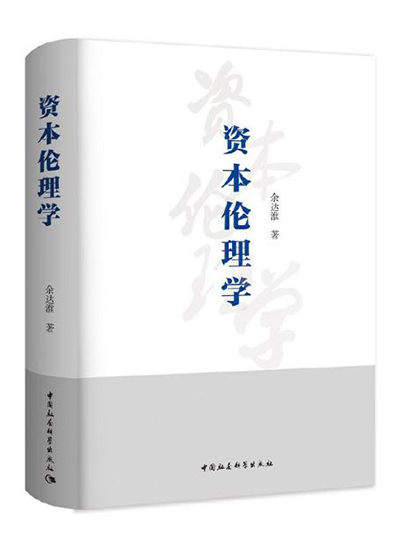Is ethics of capital an independent discipline?

The Ethics of Capital
Capital, a “new shining star” in modern society, is widely welcomed because it can bring social prosperity. However, it also requires vigilance due to its potential to induce social problems. In modern society, whether capital can be brought into ethical and legal tracks to become a positive force driving and guaranteeing social development is a major topic of academic discussion.
The Ethics of Capital, authored by Yu Dahuai, a professor from the School of Marxism at Hohai University, focuses on capital’s ethical restrictions. Yu first put forward the concept of “ethics of capital,” trying to establish it as an independent discipline.
The core concept of “capital ethic” must be established as a necessary prerequisite before ethics of capital can become an independent discipline. The concept depends on whether capital possesses or shares morals. The author argues that capital can be moral in two ways. The first way is “external infusion”—morality is a norm outside of capital, and enters into capital through external infusion. Since capital exists in society, it is restricted by social factors, including existing social systems and moral concepts.
Second, morality is a requirement inherent in capital, which grows out of capital through “inward introduction.” This avenue is possible because capital’s self-realization as an independent social force inevitably demands corresponding norms, such as fairness, credit, and service.
Ethics of capital is a discipline about ethical traits embodied in the process of capital operation, with three aspects. One aspect is the ethical relationship triggered by capital operation, including ethical relationships between capital and nature, between capital and society, and between capital and man. The second aspect involves moral requirements for capital operation, which include the moral inspection of capital itself, and ethical restrictions in the process of capital operation. The third aspect relates to social moral environments that are necessary in capital operation, including the moral concepts of people involved and the ethical standards of social systems.
To be an independent discipline, ethics of capital must have a relatively complete core category system. Four pairs of core categories are analyzed in the book, covering four facets of capital’s ethical relationships. “Exploitation” and “poverty” involve ethical relationships between capital and workers; “service” and “credit” touch on ethical relationships between capital and consumers; “freedom” and “time” come down to ethical relationships between capital and nature; “sharing” and “development” relate to ethical relationships between capital and society.
Li Zhixiang is a professor from the School of Public Administration at Nanjing Normal University.
Edited by YANG LANLAN
